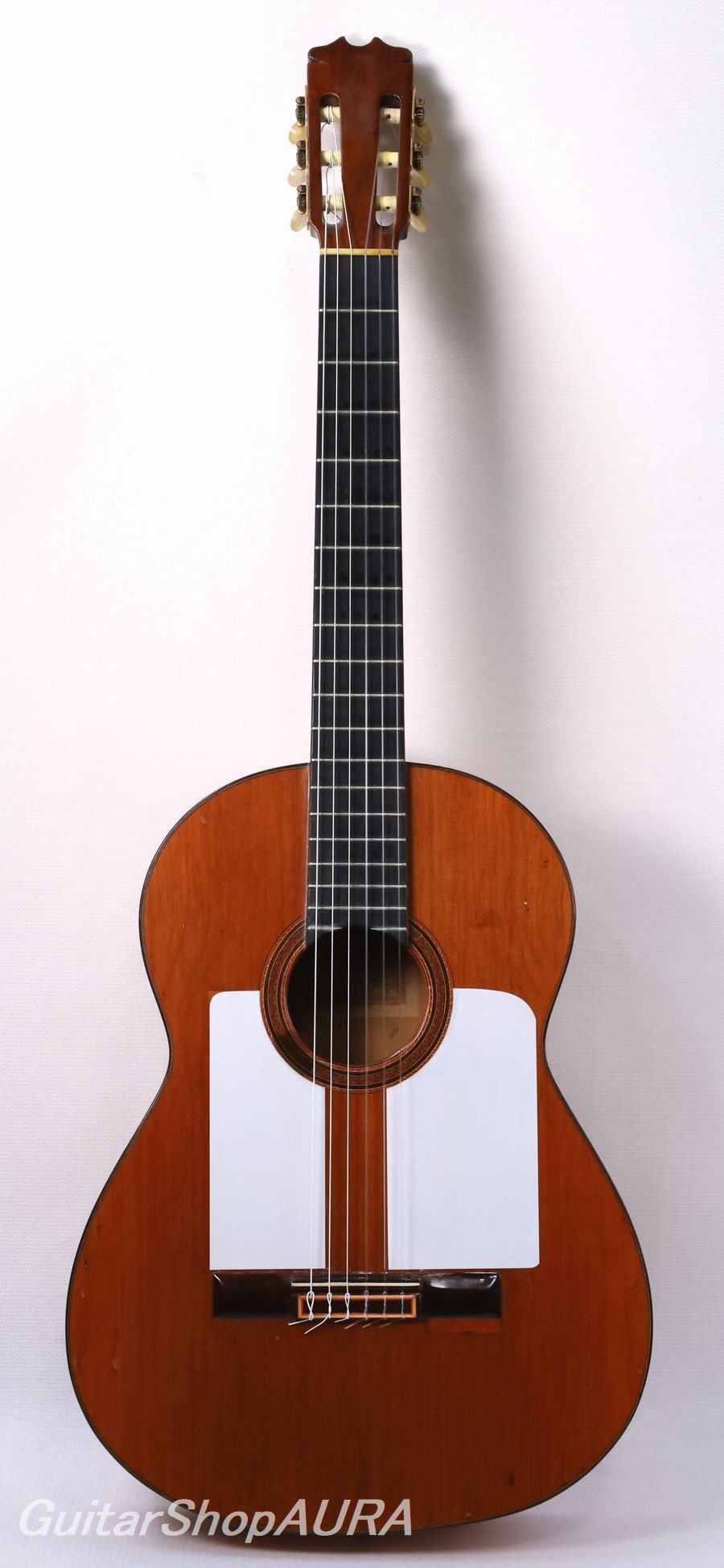
| Instrument | Sobrinos de Domingo Esteso |
| Category | Imported Flamenco Guitars 〔Vintage〕 |
| Number/Model | Flamenco Blanca |
| Scale length | 662mm |
| Country | Spain |
| Year | 1970Year |
| Top | Solid Ceder |
| Side&Back | Solid Cypress |
| Condition※ | 7 |
| List price | INQUIRE |
| Price (tax included) | Please Inquire |
| option | with Hardcase |
Click to enlarge the photos below
Neck: Cedro
Fingerboard: Ebony
Finish(Top): Lacquer
Finish(Back & Sides): Lacquer
Tuning Machines: Unknown
String Height(1st): 3.1 mm
String Height(6th): 3.6 mm
[Profile]
Conde Hermanos is regarded as one of the most iconic Spanish flamenco guitar brands. Its origins trace back to Domingo Esteso (1882–1937), who trained at the legendary Manuel Ramírez workshop in Madrid alongside Santos Hernández (1874–1943). In 1919, Esteso opened his own workshop on Gravina Street, Madrid. His nephews, Faustino Conde (1913–1988), Mariano (1916–1989), and Julio (1918–1995), joined the workshop under his guidance. After Esteso’s passing, the workshop continued under the label “Viuda y Sobrinos de Domingo Esteso” (Widow and Nephews of Domingo Esteso). Following the death of Esteso’s widow in 1959, the label was changed to “Sobrinos de Domingo Esteso / Conde Hermanos,” marking the first use of the “Conde Hermanos” brand name.
In the 1960s, all models were redesigned, including internal structures, and the famous semi-circular Media Luna head shape became the signature of high-end models. Rising global demand during this period helped the brand gain international recognition.
By 1980, Mariano established a workshop in Felipe, Madrid, working with his sons Felipe I and Mariano II in collaboration with the Gravina workshop. After Faustino’s death in 1988, the Felipe workshop began independent operations, which were later carried on by his sons. In 2010, Felipe I and Mariano II established their own independent workshops under the names Felipe Conde and Mariano Conde, respectively, continuing the family tradition while incorporating their unique artistic vision.
Conde Hermanos guitars have been played by numerous celebrated flamenco guitarists, including Paco de Lucía, and remain essential instruments for flamenco enthusiasts today.
[Description]
This is a 1970 Conde Hermanos guitar, labeled “Sobrinos de Domingo Esteso” with a handwritten “Conde” signature. It is an exceptionally rare model featuring a cedar top—a highly unusual choice for this brand. Possibly made either in homage to contemporary José Ramírez guitars or as a custom order, the combination of unique elements brings out the instrument’s latent potential, resulting in a remarkably charming sound.
While post-1980 Conde guitars are known for their firm, focused tone, earlier instruments like this 1970 model offer the warm, woody sound characteristic of old Spanish guitars. This guitar delivers crisp flamenco articulation with strong drive, expressive rhythmic attacks, and rich, slightly soft tonal colors imparted by the cedar top.
The internal bracing includes a harmonic bar above and below the soundhole, seven symmetrically arranged fan braces, and two V-shaped closing bars whose apex is slightly shifted toward the bass side. Resonance is set just below F#.
The guitar shows signs of use, including playing marks, scratches, and minor dents. There are repairs on the sides near the bottom, and the top has been lacquered with touch-ups applied to minor dents. Some internal reinforcement has been made. The lacquer finish shows light cracking (weather checking) but does not affect playability. Additional minor repairs include small patches on the bridge plate (treble side) and golpeto plate (bass side).
The neck shows slight forward bow but is within acceptable limits; frets show wear on 1–8F but remain playable. The neck features a thin, flat D-shape and the back shows some marks. The headstock has the signature Conde semi-circular Media Luna cut. The rosette, featuring red, black, beige, and brown, stands out beautifully against the reddish cedar top, making the guitar visually striking as well as tonally expressive.